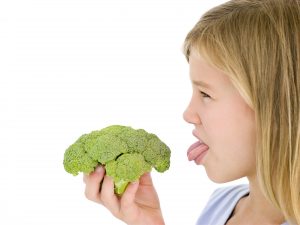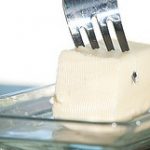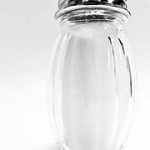What’s the secret to raising healthy kids?
Turn them into NINJAS!!
Ha. Okay. I guess I should explain. My friend and bestselling author, Matt Stone, has coined a new term that I really think is one of the most important things parents need to learn in order to raise healthy kids—Food Ninja!
What’s a ‘Food Ninja?’ A kid who…
- Has a healthy, high metabolic rate
- Can self-regulate his food intake
- Eats a healthy amount of food
- Has an appetite for a variety of foods
- Doesn’t binge on sweets or junk
- Is robustly healthy and rarely gets sick
- Has stable mood and energy levels
- Can eat a LOT of food, yet remain at a healthy weight
- Will be set up with all of these healthful qualities, for LIFE
‘Food Ninjas: How to Raise Kids to be Lean, Mean, Eating Machines’ is Matt’s latest book in his lineup of independently-researched books and educational materials, which I have been recommending for a couple years now.
I have been waiting for this book ever since reading about the infamous “McXperiment” last year—where Matt and his partner used a rather unconventional technique to cure her 7-year-old daughter of a McDonald’s food obsession—offer her McDonalds’ food for every meal, for days on end, until she loses interest and goes back to wanting normal food again. It worked.

After that, I knew a whole book about kid-feeding was coming. And I also knew it was going to be pretty epic. Food Ninjas did not disappoint. I’m not yet a parent, but I used to be a child behavioral specialist in another career life—my experience from which, combined with what I’ve learned about the importance of intuitive eating and metabolic health, have me enthusiastically recommending this one.
How to Raise a Food Ninja
I’ll share some of my thoughts along with the best points from the book that Matt makes for Food Ninja raising-and-training. Hi-ya!
Start before you’re even pregnant
What are the most pivotal times of “Food Ninja” development? Before conception, during pregnancy, and during breastfeeding.
These are very important times because it is at these times that important metabolism programming takes place. Most of what we know about childhood obesity, type 2 diabetes, metabolic rate, and overall physical and mental prowess suggests that the vast majority of our health tendencies are forged long before we ever eat our first “junk food.”
(Matt Stone, Food Ninjas)
Accomplishing this critical metabolic programming in your future children and setting the stage for their long-term health is actually a lot simpler than you might think.
As a prospective parent, a pregnant lady, or a breastfeeding mama—your focus needs to be on just a few simple things: a high metabolic rate and low levels of stress and inflammation. That’s pretty much it. That and just making sure to take in lots of nutrients—but that will happen automatically if you are actively working on maximizing your metabolism.
(Matt Stone, Food Ninjas)
I don’t know about you, but to me, that’s a huge relief. Instead of obsessing over everything I eat, I know it’s a LOT more important to make sure I keep my psychological and physiological stress to a minimum, and that happens by fostering a healthy, high metabolic rate. The process of which also makes sure that you get all the nutrients your body needs, and keeps damaging inflammation to a minimum. It really is as simple as that.
But what happens if you fail to do that? What if a woman does the opposite of what’s metabolically healthy, especially during her pregnancy? The consequences are astounding, really.
There are influences with the quality of food we are fed as an infant (the quality of milk from mother to mother is radically different), and we inherit a lot of hormonal tendencies due to the influences of the intrauterine environment. For example, if mom restricts food intake while she’s pregnant, that has an impact on the child. It lowers the child’s metabolic rate, a perfectly smart adaptation to a world in which food is scarce.
(Matt Stone, Food Ninjas)
Matt goes on to reference a study in which “adult children of mothers exposed to famine [failure to eat adequate amount of calories, or dieting] during the first two trimesters of their pregnancy were 80 percent more likely to be obese as adults,” and were also found to have “higher rates of heart disease, diabetes, and other chronic disease and even mental illness…”
Wow. Clearly, sending the signal to your body that there is always an abundance of energy (calories) and nutrients, is critical in the development of a healthy metabolic rate in your unborn child. The same is true of a growing kid in his critical developing years—he needs an abundance of available energy to his body, and in order to maintain that balance, he needs to be the one regulating it.
Don’t use the “H”-word
You know what descriptive word your kid never needs to hear about the food he eats?
“HEALTHY.”
I’m serious. “Eat up all that healthy broccoli, honey!”
“Don’t forget your healthy snacks!”
“Here, you can have this healthy fruit for dessert instead!”
 “Healthy” isn’t helping. For one thing, if you’re using this word in an attempt to get your kid to eat something that he doesn’t want to eat, you’re interfering with his natural instincts to eat what his body needs—and honestly, he may not need eighteen servings of vegetables that his digestive system can’t handle as well as yours may be able to. Kids’ tastes are sensitive because their bodies are sensitive—and they aren’t yet developed to handle huge amounts of things like bitter oxalic acid or indigestible cellulose, found plentifully in all that greenery you’re trying to force down Junior’s throat.
“Healthy” isn’t helping. For one thing, if you’re using this word in an attempt to get your kid to eat something that he doesn’t want to eat, you’re interfering with his natural instincts to eat what his body needs—and honestly, he may not need eighteen servings of vegetables that his digestive system can’t handle as well as yours may be able to. Kids’ tastes are sensitive because their bodies are sensitive—and they aren’t yet developed to handle huge amounts of things like bitter oxalic acid or indigestible cellulose, found plentifully in all that greenery you’re trying to force down Junior’s throat.
But in order to help your child avoid developing habits of only eating the “unhealthy” foods—you have to quit teaching them that the food they may like to eat is so horrible for them. Because they more than likely wouldn’t have such an affinity for the “bad” food if it weren’t slapped with a “Do Not Touch!” label by you.
“By chastising bad foods, you create complex emotional/psychological chain reactions that result in impaired eating behavior. One of the greatest downsides to being highly intelligent, self-aware creatures is our ability to interfere with instincts that are perfectly capable of performing a job correctly. Just step aside. The act of eating should be as emotionally and psychologically neutral as possible, especially for a young child that is still untainted by thought for food.”
(Matt Stone, Food Ninjas)
If the food that sounds good to your kid is “unhealthy,” according to you, that sends a really negative message to him—that his own body doesn’t know what’s good for it.
Does this mean you can’t ever dictate what your child is going to eat, or make sure he’s eating actually healthful, nutritious food? Of course not! Prepare all the healthy food for your child that you want. Just quit telling him that that there’s “good foods” you want him to eat, and “bad foods” that his friends eat (and that he now will want to eat, too). Trust me, your kid doesn’t need you to pass along your own neurotic food-analyzing tendencies (ahem, guilty over here!) to him. The best way to help him learn how to eat healthfully is to simply lead by example, and back off from the “healthy” vs. “unhealthy” labels.
When food is just food, your child’s own natural ability to regulate his nutrient intake can take over, without any external interference. He won’t groan about his dinner because he knows he has to force himself through that “healthy” food to get to the good stuff at dessert.
He won’t be sucked in like a magnet to the chips and cookies he only gets at his friends’ house, because they’re not outlawed in his own house.
He won’t gorge on the mountain of Halloween candy he only gets once a year until he’s literally blue[-raspberry] in the face, because he’ll be allowed as much of it as he wants later on. And there should still be pieces of of it left in the bag all the way ’til next Halloween. Because it’s not a “treat,” it’s just another edible thing that he has the option to eat. It’s just food.
This concept of “food neutrality,” is the single most important factor in healthy eating psychology. I know it can be a tough one to wrap your health-minded head around, but it’s truly worth understanding for the sake of your child’s development.
Never use food as a reward
To piggyback on the whole idea of keeping a neutral attitude toward food, I think it’s imperative to clarify that you should also never use food for anything other than what it is—food. Not a bribe, not a consequence, not a reward for any other activity.
When you use food as a reward for eating other food, especially, you’re automatically training your child that the food they’re eating for the reward is no good to them unless they can have the reward food. This is setting the stage for junk food obsession, binging, and other disordered eating behavior.
“…the typical knuckle-dragging parenting tactic of bribing kids to eat veggies will pretty much kill any chance they could have had for enjoying them. Turning something into work, or a means to an end—“Finish your veggies and then you can watch TV!” decreases the pleasure one derives from it. Offering up a reward makes whatever is used as a reward more attractive, and whatever you need to do to obtain it less attractive. If you want your kids to be TV and ice cream junkies, keep offering them up as rewards. Or tell them yummy foods are bad for them and that they are not allowed to eat them. Set ‘em up for a good, hearty binge. All of these well-intentioned interventions have the exact opposite impact as intended.
(Matt Stone, Food Ninjas)
Respect your kid’s instincts
You know how a newborn baby already comes with the ability to cry when he needs to be fed? And knows what his body needs to eat? And how much of it he needs to eat?
Your child still has these innate regulatory instincts intact. Well, unless you screw it up for him along the way by interfering with his ability to feed himself—by making the mistake of telling him what he should eat, what he should never eat, how much he should eat, when he should eat, and other parent-imposed eating habits. Don’t do that.
“If anything, your job as a parent is to protect that proper functionality [of the body’s energy-regulating system], not force kids to eat vegetables, teach them horrifying things about foods that they like, and flip on the tube after dinner to watch an extreme weight loss television program with them. That’s only going to pollute a kid’s mind with thought for food, and thought for food leads to interference with instinct and a hard, lifelong, neurotic battle to try to figure out what, when, and how much to eat (when it otherwise could be effortless).
(Matt Stone, Food Ninjas)
This doesn’t just go for kids, either. Everyone should be aware of the importance of eating instinctively and allowing your body to dictate your own eating habits, rather than trying to force them from what you read in a diet book.
Trying to eat a healthy diet and intellectualizing food choices—using your head to decide what and what not to eat at any given moment, is a huge problem that typically ends in abysmal failure for many reasons. The biggest problem is perhaps the distortion of hunger and fullness cues when one tries to consciously interfere with instinctual programming, as well as the message it sends your metabolism when you constantly deny yourself of what your internal cues are trying to drive you to eat. It sends the signal of scarcity, and if you don’t think the body is programmed to know what scarcity is and respond accordingly to it, you’re not giving your body nearly enough credit.
(Matt Stone, Food Ninjas)
Does that mean there’s absolutely never a time or place for conscious discernment in regard to your food choices? No, that’s not what we’re saying. I think it’s important to be educated about your food choices, especially in dispelling the many damaging myths surrounding nutrition that are perpetuated in the media. For example, we know that saturated fat is actually healthy and necessary, and that excessive polyunsaturated fat (especially from industrialized oils) is not. Your instincts will still tell you to eat fat, and you should listen to them—but because you’re educated, you know which fat is the best one to choose.
And let’s be real, here. It’ll also be the tastiest, and the one you naturally want to eat, anyway! When was the last time you craved a drizzle of vegetable oil on your bread? Yeah, never? That’s what I thought.
But does this sound good to you?
See. Your body is smart. Listen to it, and allow your kid to do the same.
Could your kid pass the “Cookie Test?”
What happens when your child becomes endowed with Ninja-like eating skills, thanks to your ability to back the heck off and allow him to listen to his own body?
Well, your little Ninja will be able to pass the ultimate assessment in the art of Food Ninjary—The Cookie Test.
A child can pass the cookie test by declining a cookie when offered, giving it to you or a sibling untouched, or eating part of the cookie but not finishing it. A Food Ninja should like cookies and be able to eat enormous quantities of them in certain circumstances. But it should just be an edible disc, and one that is not at all interesting when there is no appetite. A Food Ninja eats because they are hungry and in the mood. They will not just eat a cookie because it is in front of them. If there is a cookie jar it should be out in the open and in plain view and easy to reach. You shouldn’t have to worry about cookies disappearing at a fast rate in your household if everyone is Ninja Certified.”
Are you up for the challenge?
Get Food Ninjas for less than 3 bucks
The brand-new Food Ninjas ebook is available for only $2.99 on Amazon.
Click HERE to check it out: Food Ninjas: How to Raise Kids to be Lean, Mean, Eating Machines
Other things you’ll learn in Food Ninjas include:
 Why the content of linoleic acid (omega-6 PUFA) in your breast milk will predict the size and number of fat cells in your infant—and how that relates to obesity
Why the content of linoleic acid (omega-6 PUFA) in your breast milk will predict the size and number of fat cells in your infant—and how that relates to obesity- How decreasing your intake of a common fatty acid will result in the production of far less inflammatory hormones in your body, allowing you to maintain a healthy metabolic rate during pregnancy and breastfeeding
- What nutrients you’ll need the most to keep stress hormones at bay during pregnancy
- Why drinking too much water could alter the quality of your breast milk, and why water given to infants can cause seizures or other potentially-dangerous effects
- How many calories your child actually needs to maintain a healthy metabolic rate (hint—it’s way more per pound than you need!)
- How to ensure that your child can eat however much his or her body desires, without becoming overweight or obese
- How to help your child automatically get enough exercise and physical activity, without forcing them into it
- The “Metabolism Report Card” with what signs to look for to make sure your child is metabolically healthy
Happy reading, and enjoy your journey to a family of Food Ninjas!






I do agree with many of the points made in the above article. However, through my parenting experience thus far with my 5 year old, I have to regulate the food or my child would literally eat junk food All. Day. Long!So I don’t make her eat every bite on her plate. I tell her to eat until she is full. However, she will eat a few bites- say she is full, then immediately ask for a dessert. So I tell her that she is obviously not full if she already wants dessert. So then she proceeds to eat all of her food just so she can have a dessert. I am not sure how to correct this behavior. I do not make her eat the food. She does it herself in order to get a dessert. I have tried to instill in her that we do not always have to have dessert or a snack after dinner, but that if she is still hungry after her dinner she can have one. I am not going to withhold food, especially when most of our desserts and snacks are homemade and “healthy”. I have try not to use “healthy” and “unhealthy” labels for food anymore. Instead I simply tell her that “cake, cookies, chips etc.” are ok to have occasionally but not all the time. So I do let my child have treats quite often, but I make sure she eats a good meal before hand. I do not see anything wrong with that.
Matt is truly an unschooler at heart I LOVE that he is promoting unschooling food with kids in order to have happy “healthy” lives <3 fantastic!!!
I hadn’t thought of it that way, but you’re right! It’s VERY “unschooling”-like!
my son is a food ninja, just happened that way. I never believed in”kid food” I feed kids what I eat. my step daughter is not, she won’t eat most foods but loves the junk and i mean spaghettios, mac and chesse, she never touches fruit or veggies, and she has an obsession with dairy always wanting milk and to put cheese on everything but im not sure what to do, the dairy bothers me because she smells like rotten milk she is 9.
I’m really struggling to get my 19 month old son eating good volumes and good variety with his solids.
He, at least, has a solid base of breast milk and raw milk and will eat butter/ghee/coconut oil/lard straight off the spoon.
Really hoping he’ll turn out a Food Ninja though, cos right now he’s a fussy pants!